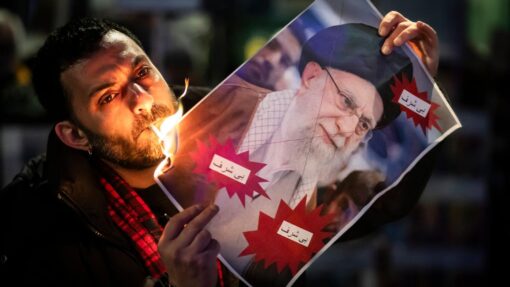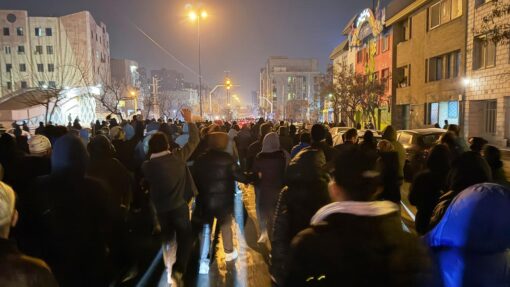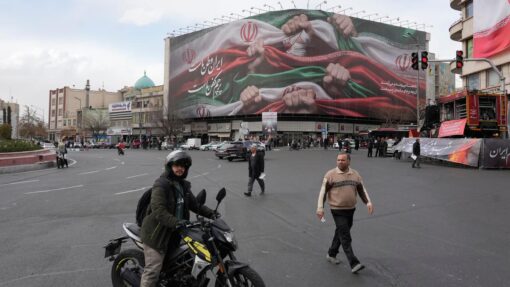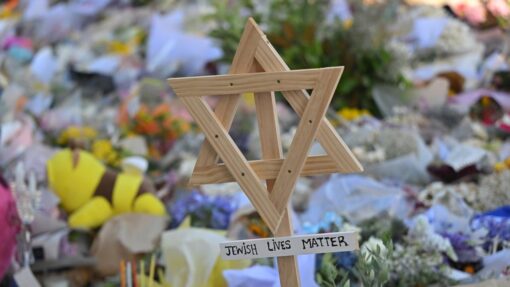Protester confident in fight against new police powers
Adelaide Lang and Sebastian Tan |
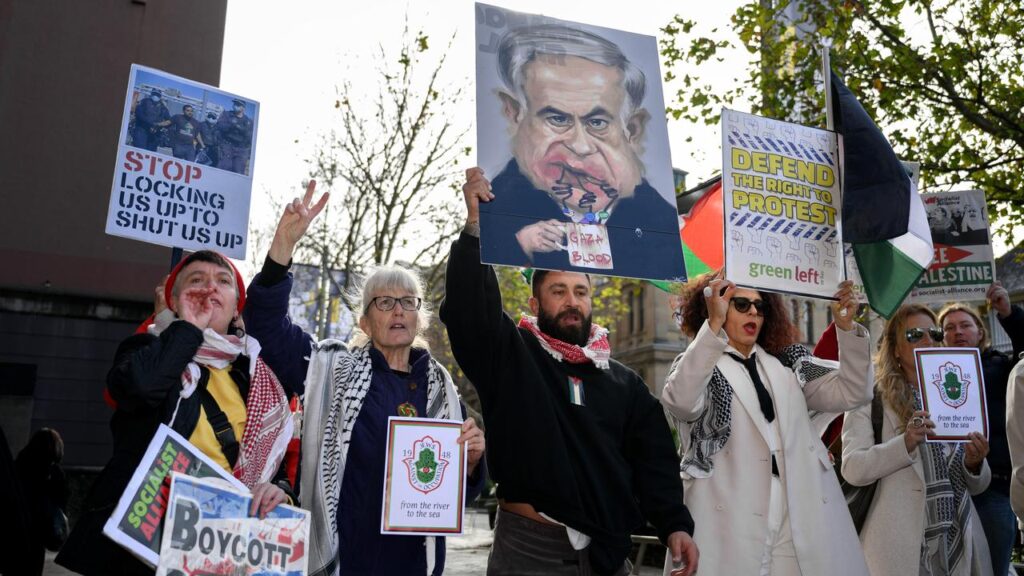
A state’s solicitor-general has defended controversial laws that grant police the power to move protesters on from places of worship if they are deemed to be disruptive.
Michael Sexton SC faced the NSW Supreme Court on Thursday on behalf of the state government amid a challenge to the validity of anti-protest laws implemented in February.
Josh Lees, on behalf of the Palestine Action Group, launched legal action over the new laws which he claims are very broad, undefined, and threaten the right to protest in NSW.
Mr Sexton said the powers were confined to protecting people who were being targeted by disruptive protesters when entering or leaving a place of worship.
He told the court it was “difficult” to imagine a situation in which the laws would be enacted without the provocation of protesters causing harassment, intimidation or fear.
The police powers had an “obvious and legitimate purpose” after being introduced in response to threats and attacks at places of worship around Australia, Mr Sexton said.
Rather than standing alone, he told the court the laws were meant to be read in conjunction with other legislation which would lend context and application tests.
Mr Lees’ barrister Craig Lenehan SC accused the state government of attempting to have the judge perform “judicial surgery” because of their unclear construction of the law.
He said the law had not been tailored for purpose and didn’t provide any clarity to either police or protesters about the reach of the powers or the definition of nearness.

Mr Lenehan took aim at the “legislative blunderbuss” which he said was “blasting away at an ill-defined mischief” and would likely have a chilling effect on protesting in NSW.
“Because of those vagaries, the upshot is that a person might just stay home,” he told the court.
Mr Lees’ legal team argued the laws allow police to direct protesters to desist, even in instances where there was no evidence a worshipper had been obstructed, harassed or was in fear.
That meant the laws had stretched police powers beyond their legitimate constitutional bounds, the court was told.
Mr Lenehan contended the laws were discriminatory because they expressly target certain types of political speech in a way that inevitably favoured some viewpoints over others.
Mr Sexton argued the validity of the laws wasn’t affected by the fact there were exemptions for union rallies or for people in charge of places of worship to permit protests.
After the hearing, Mr Lees said he was “very confident” in securing a positive court outcome.
“These laws are unconstitutional because of how vaguely and broadly they’re worded which threatens the right to protest,” he said outside court.
“I think we can say very fairly that the government’s legal representatives had no answer to that today.”
Justice Anna Mitchelmore has reserved her decision.
The contested laws were introduced by the state Labor government after a spate of anti-Semitic attacks across the nation and amid concerns about rallies going past the Great Synagogue in the Sydney CBD.

Before their passage, Attorney-General Michael Daley said stronger penalties and boosted police powers would ensure people could practise their faith in safety.
“We believe these proposed reforms strike the right balance between protecting people of faith and the community’s right to protest,” he said.
But a rabbi and other progressive faith leaders at the time warned the extra restrictions would lead to the over-policing of peaceful protests, including those by faith communities.
AAP